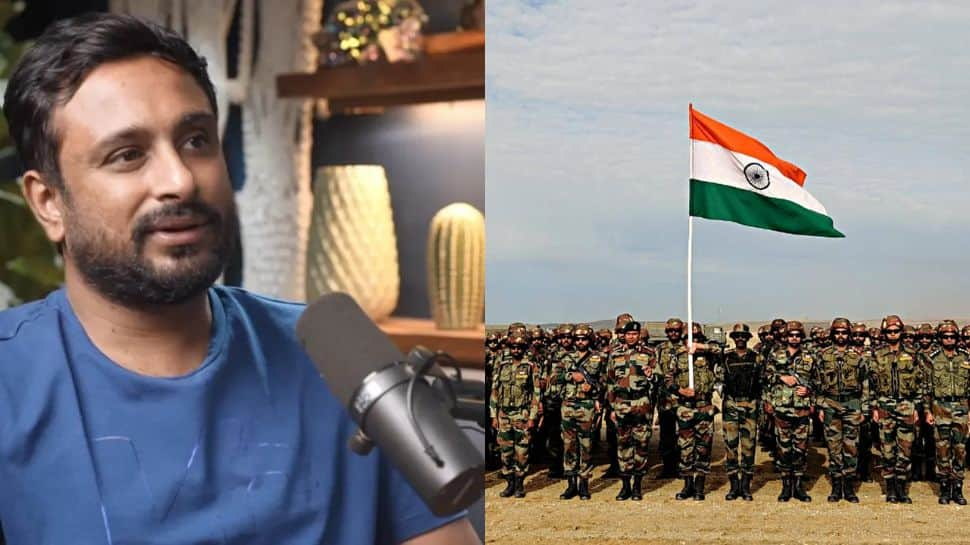In the midst of a rapidly escalating conflict between India and Pakistan, former Indian cricketer Ambati Rayudu found himself at the heart of a social media storm. On a day when drones, missiles, and artillery fire crossed borders and triggered nationwide alerts, Rayudu took to social platform X (formerly Twitter) with a message of peace: “An eye for an eye makes the world blind.” The quote, famously attributed to Mahatma Gandhi, was posted shortly after an Indian Premier League (IPL) 2025 match in Dharamsala was called off due to national security concerns. However, instead of unity, Rayudu’s tweet sparked division—drawing fierce criticism from netizens, who perceived the comment as insensitive or misaligned with national sentiment.
“An eye for an eye makes the whole world blind.”
Let’s remember — this isn’t a call for weakness, but a reminder of wisdom.
Justice must stand firm, but never lose sight of humanity.
We can love our nation fiercely and still hold compassion in our hearts.
Patriotism and peace can…
— ATR (@RayuduAmbati) May 8, 2025
IPL 2025 Disrupted: Dharamsala Match Abandoned Amid Attacks
On Thursday evening, the Indian sporting landscape was jolted when the IPL match between Punjab Kings and Delhi Capitals was abandoned mid-game. According to a BCCI release, the cancellation stemmed from a “significant technical failure” due to a power outage—caused by an alleged drone strike near the HPCA Stadium.
Fans were evacuated from the venue as a precaution. The unsettling incident marked the first time an IPL match was directly impacted by a geopolitical conflict, reinforcing the severity of the ongoing border tensions.
Operation Sindoor and Pakistan’s Provocation: A Geopolitical Flashpoint
India’s decision to launch Operation Sindoor, a precision strike against Pakistani terror bases following the April 22 Pahalgam attack that killed 26 civilians, served as the immediate catalyst. In response, Pakistan launched a counter-offensive—targeting military and civilian zones with drone swarms, missiles, and even deploying fighter jets, most of which were intercepted by India’s S-400 defence systems.
The attacks spanned Jammu & Kashmir, Punjab, and Rajasthan, with a drone even striking Jammu airport. Multiple blackouts were enforced across northern states including Chandigarh, Pathankot, and Jalandhar to manage emergency response and reduce visibility for enemy aircraft.
Netizens Roast Rayudu: “Patriotism and Peace Can Walk Hand in Hand”
Rayudu’s peace post—intended as a plea for non-violence—was met with brutal trolling. Social media users accused the former Chennai Super Kings batter of being naïve, tone-deaf, and even labeled him a “traitor.”
One user commented, “This is not the time for philosophical quotes. Our soldiers are risking lives.” Others questioned his patriotism, citing the gruesome attacks and casualties in the border regions.
Responding to the outrage, Rayudu issued a clarification tweet:
“This isn’t a call for weakness, but a reminder of wisdom… Patriotism and peace can walk hand in hand.”
He followed up with a more direct message saluting the armed forces:
“In moments like these, we stand united not in fear, but in resolve… Your bravery is what keeps the tricolour flying high.”
Rayudu’s Real Message: A Call for Unity Amid Unrest
While many took offence, others defended Rayudu’s intent—arguing that peace is not weakness but strength in restraint. His call to “remember humanity even in justice” resonated with a section of the audience advocating for strategic maturity over emotional retaliation.
In an emotionally charged environment, Rayudu’s statement reignites the age-old debate: can peace and patriotism coexist in times of war? The former middle-order batter, who’s no stranger to the limelight or controversy, may have meant well—but his message arrived at a moment when the nation’s mood leaned heavily toward retaliation.

